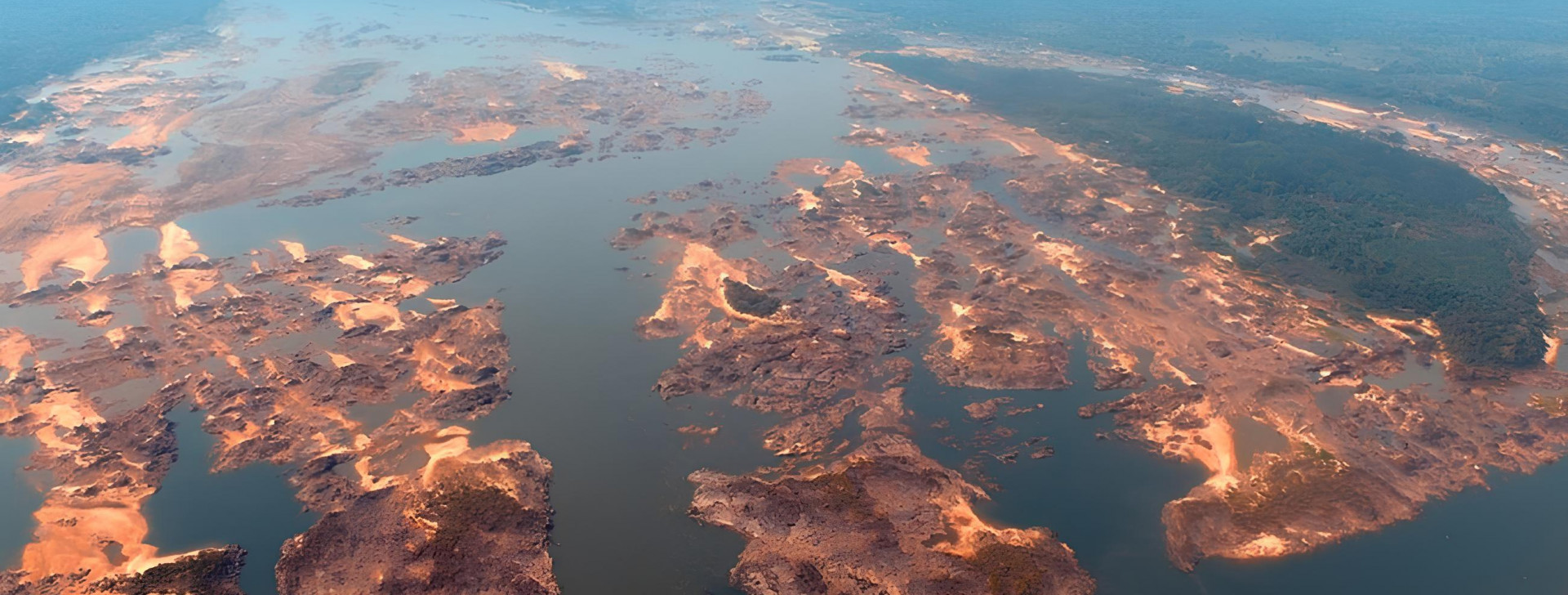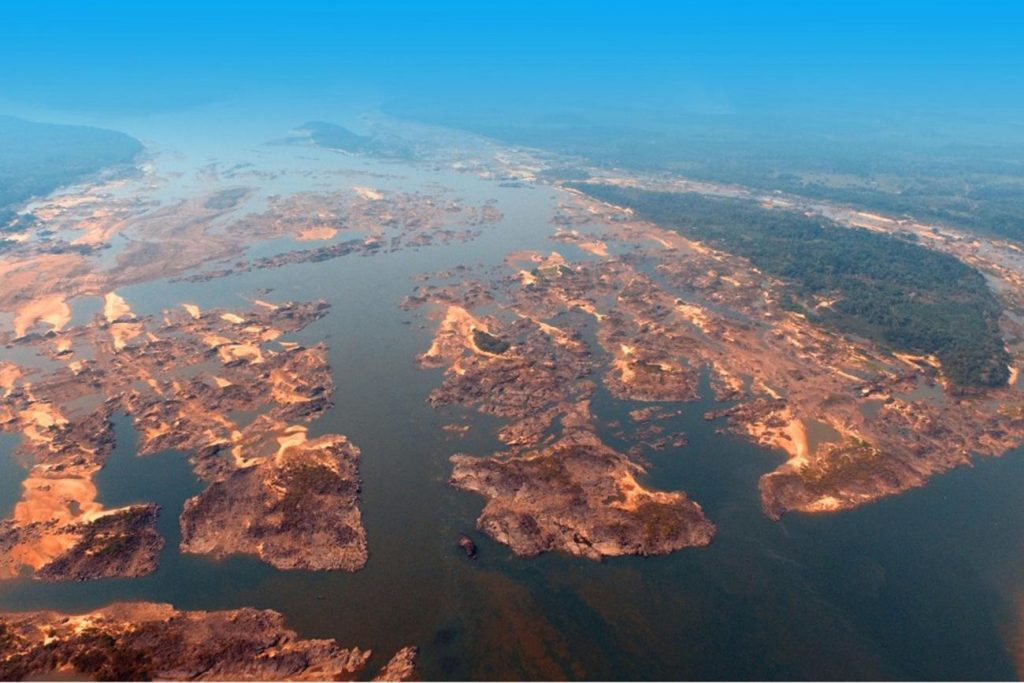Environmentalists warn of risks from rock removal in river in Pará
29 de May de 2025

By Fabyo Cruz – From Cenarium
BELÉM (PA) – The authorization by the Brazilian Institute of Environment and Natural Renewable Resources (Ibama) for the start of the rock removal at Pedral do Lourenço, in the Tocantins River, in Pará, has raised an alert among environmentalists, social movements, and the Federal Public Prosecutor’s Office (MPF). Considered essential for the consolidation of the Araguaia-Tocantins waterway, the project is also seen as a direct threat to the environment and the riverside populations of the region.
The installation license was signed on Monday, the 26th, and allows intervention in about 40 kilometers of submerged rock formations that hinder the navigation of cargo vessels in the stretch between Itupiranga and Marabá, in southeastern Pará. The goal is to make navigable, year-round, the waterway of more than 1,700 kilometers in length, which connects the city of Peixe, in Tocantins, to Belém, in Pará.
The governor of Pará, Helder Barbalho (MDB), celebrated the decision. “After about eight years of waiting, the environmental license for the beginning of the rock removal at Pedral do Lourenço has finally been issued. Those from Pará know how important this work is,” he said in a video on social media. The governor also said that, in the coming days, he should go to Itupiranga to sign the service order that marks the effective start of the works.

The measure was also celebrated by the federal government as a decisive step for logistical integration between the Midwest and the North of the country. “It is a historic milestone, a decision that should bring socioeconomic development to the Center-North of the country, in addition to helping reduce greenhouse gas emissions, since the development of waterways is the main means to fulfill the Paris Agreement,” said the Minister of Ports and Airports, Silvio Costa Filho.
Warning of Violations and Impacts
Despite official enthusiasm, the granting of the environmental license generated strong reactions from social organizations and members of parliament. The Movement of People Affected by Dams (MAB) also criticized the decision in a public statement. For the movement, the project directly compromises the livelihood of thousands of riverside and indigenous families, threatening the ecological balance of the region.
“The project will cause a decrease in the amount of fish, water contamination, disappearance of species, among other disturbances, with no forecast of compensation compatible with the size of the damage,” the statement says.
According to MAB, the impacts are not only environmental. “The project is justified by the need to enable full navigation of the Tocantins River to transport commodities, under the discourse of so-called ‘progress’, at the expense of the lives and well-being of so many families living on the riverbank,” says the statement. The movement also recalls that many of those affected by the project still suffer from the lack of compensation for the construction of the Tucuruí hydroelectric plant, located upstream from the stretch.
State representative Lívia Duarte (Psol) harshly criticized Ibama’s authorization. In a post on social media, she classified the project as “a direct attack on the environment and the peoples of the Tocantins River,” pointing to the use of underwater explosives over 35 kilometers of rock without prior consultation with traditional communities, as required by Convention No. 169 of the International Labour Organization (ILO).

“In the land of COP30, Ibama has just authorized the start of the rock removal works at Pedral do Lourenço, without prior consultation with traditional communities. There is no climate justice with the destruction of territories and the silencing of riverside and indigenous populations,” wrote the parliamentarian.
MPF points to illegality
The criticisms of the license also reached the legal field. The Federal Public Prosecutor’s Office (MPF) considers the authorization illegal due to the failure to comply with conditions established by the preliminary license itself and for violating a court decision currently in force.
According to the agency, the project was authorized without presenting the required fishing landing studies, in addition to ignoring the legal obligation of free, prior, and informed consultation with traditional populations.
“The destruction of natural habitats will affect aquatic fauna and flora, altering the river’s flow dynamics and causing changes in sedimentation, which can destabilize banks and ecosystems. Ignoring the reality of traditional peoples who inhabit the region and depend on the river for their subsistence is a serious violation of human rights,” highlighted the MPF in an official statement.

